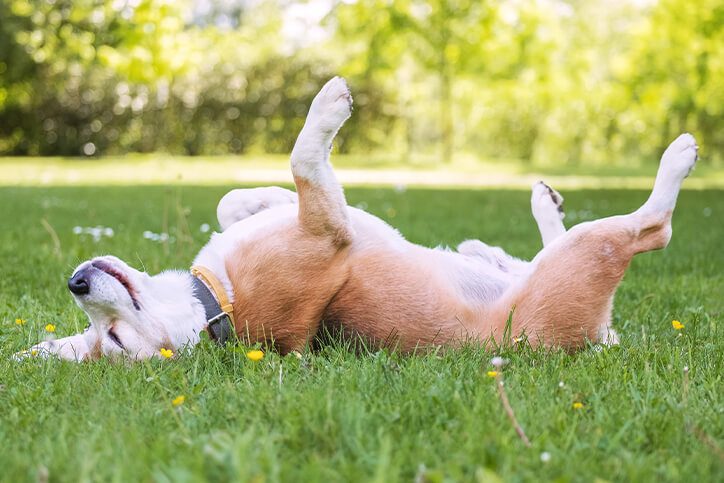What You Need to Know About Dog Parvo in Livonia, MI
Parvovirus is one of the scariest diseases a dog can possibly face. This virus is not only hard to treat, but even more challenging to keep from spreading. Parvo is a massive concern to breeders, mainly because usually only puppies aged six weeks to six months catch parvo. In this article, you will see all you need to know about parvo, including the causes, prevention, symptoms, diagnosis, and treatment of the virus.
What Causes Parvo?
Parvo is a virus that is spread through the feces of an infected dog. The virus is able to spread from the fecal matter onto surfaces and can live for months and years if it isn’t sanitized completely. Parvovirus has been found living in the ground of yards for a long time and even after sanitizing. There are only a few chemicals that have been found to kill parvovirus entirely. Due to its ability to spread to many surfaces, it is difficult to remove altogether to a place it has been introduced.
The virus starts in the feces and will transfer to the area around it. Then it may be picked up by the dog’s paws or noses when they are in an infected area. After that, even dogs that are immunized against parvovirus may move the virus around to new areas creating more places for infection to occur. One dog in one yard with parvovirus introduced to it can spread the virus throughout the entire house as well as their neighborhood during walks.

How Can Parvo Be Prevented?
The best way to deal with parvovirus is vaccination. Puppies younger than six weeks are protected from parvo from their mother’s antibodies if she has been immunized. At six to eight weeks, puppies can get their first vaccination against parvo but are still not fully protected until they’ve received the entire four-shot series.
When puppies are unprotected against parvo, you must take the most care with them. It’s best not to take your puppy to parks, especially dog parks, until their vaccines are complete. You may want to socialize them and see this as a great way to do so. However, areas where many unknown dogs frequent are the worst place for unvaccinated dogs to get infected with parvo. Keep your puppies in places you believe to be safe from parvo, such as your home or homes of people you trust who have vaccinated dogs and have no history of parvo.
The best prevention is to know as best you can that you are keeping your puppy away from other dogs you don’t know the history of.
What Are the Symptoms of Parvo?
The symptoms of parvo can range from minor to life-threatening. Usually, the disease will start with mild symptoms such as weakness and depression. Next, they may experience vomiting and diarrhea. This will then lead to fever and dehydration. Within 48 to 72 hours, the disease will worsen progressively. Most deaths of parvo occur at this time due to sepsis which is usually the final stage of parvovirus. This is why it is so vital that you take them to the vet immediately once you see any symptoms you believe could be parvo in your dog. Your dog will be diagnosed at the clinic and treated right away.
How is Parvo Diagnosed?
When a dog shows signs of parvo, our veterinarian in Livonia, MI, will confirm the diagnosis through fecal testing. Once a dog or puppy is confirmed to have parvovirus, they will be isolated from all other animals. Everything they have come in contact with will be specially sanitized against the virus with cleaners that have been proven to kill parvo.
Parvo is very contagious, so the utmost care must be taken to prevent the spread of the virus. Sometimes a dog or puppy suspected of having parvo will be isolated before testing has even started. A dog with parvo will be treated immediately.
How is Parvo Treated?
There is no drug that cures parvovirus, so all the treatment for parvo is focused on treating the symptoms. The most important treatment is to reduce and prevent dehydration. Also, the vomiting and diarrhea are combated with medications. These two treatments will prevent the infected dog from going into sepsis or shock, which are the main complications that make parvo fatal. Veterinary professionals will also work to reduce fever and help to replace nutrients and electrolytes in the animal. A high level of nursing care goes into treating a dog diagnosed with parvovirus.
All of the treatment for parvo is used to allow the dog’s own immune system to have the strength to fight off the virus. It may take a dog who has recovered from parvo anywhere from seven to ten days and sometimes even longer based on the severity of the case.
Prevention is Key; Reach Out to Our Animal Hospital in Livonia, MI, to Schedule Your Puppy’s Vaccinations
Parvovirus is a very serious disease that is hard to control. The best offense against this virus is to prevent it as much as possible with proper vaccination. Puppies that aren’t vaccinated must be kept safe from dogs with unknown medical histories. The severity and infection rate of parvovirus can be intimidating, but it is a virus that can be treated if caught early enough by veterinary professionals.
Puppies with parvo must be isolated because of the highly contagious nature of the virus and treated immediately so that their immune system has a fighting chance of recovering from the virus. The prognosis of parvovirus is much higher than it used to be in dogs that receive treatment as soon as symptoms are shown. Parvo is not the scary virus it once was; it is on the shoulders of humans to be responsible pet owners and have their dogs vaccinated, tested, and treated for parvovirus as soon as possible to lessen the effects of parvo.
To schedule your puppy’s vaccinations to prevent parvo, give our animal hospital in Livonia, MI, a call at (734) 464-6281.

